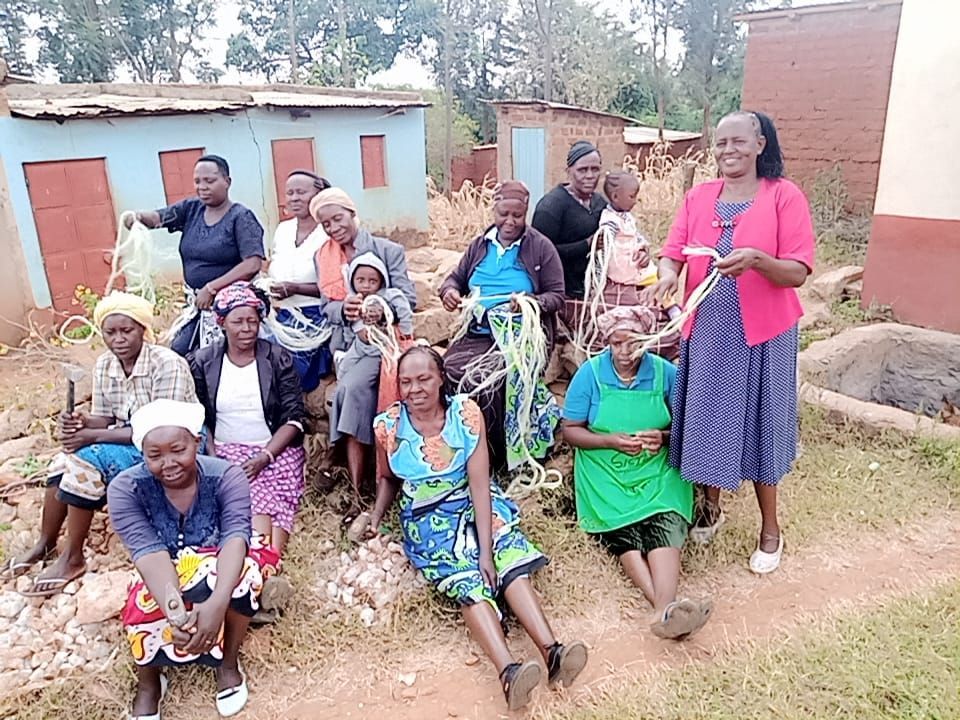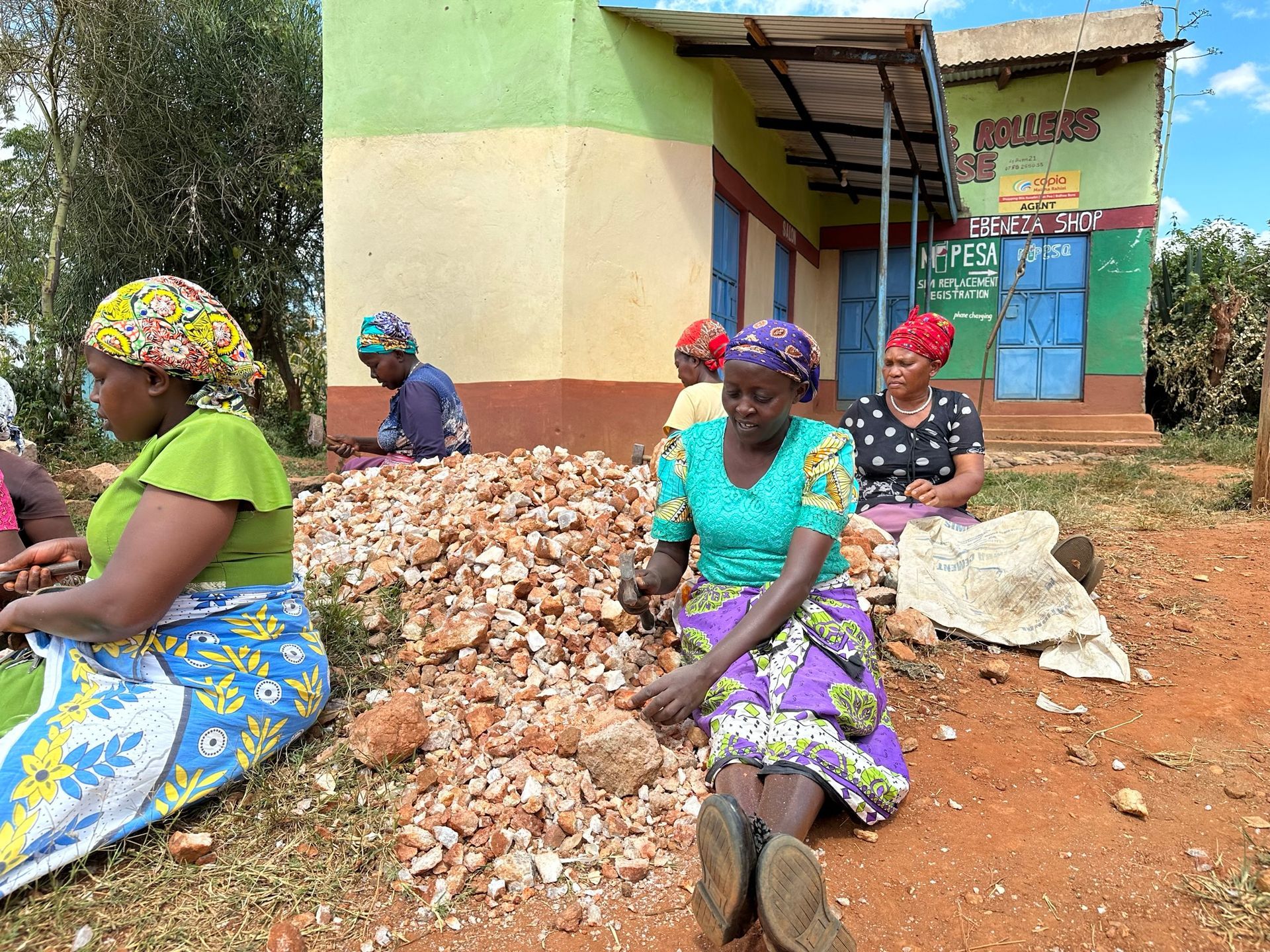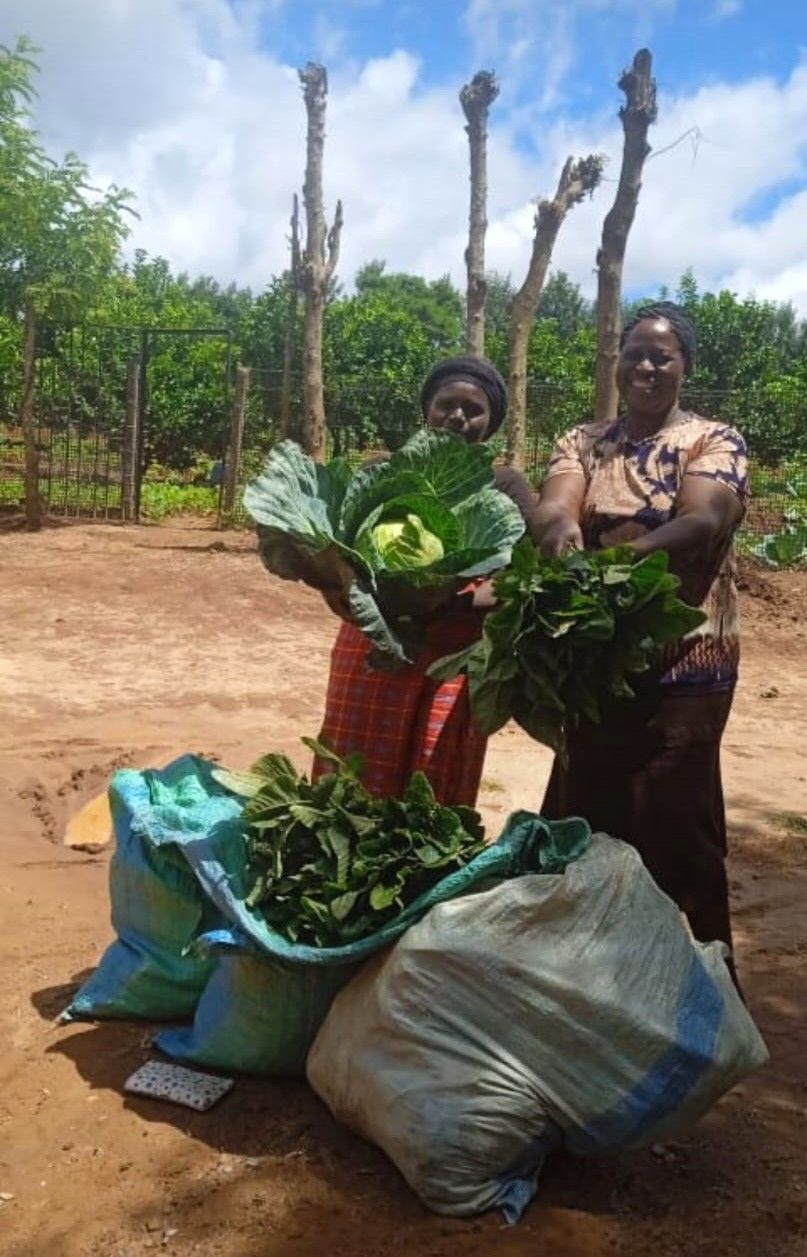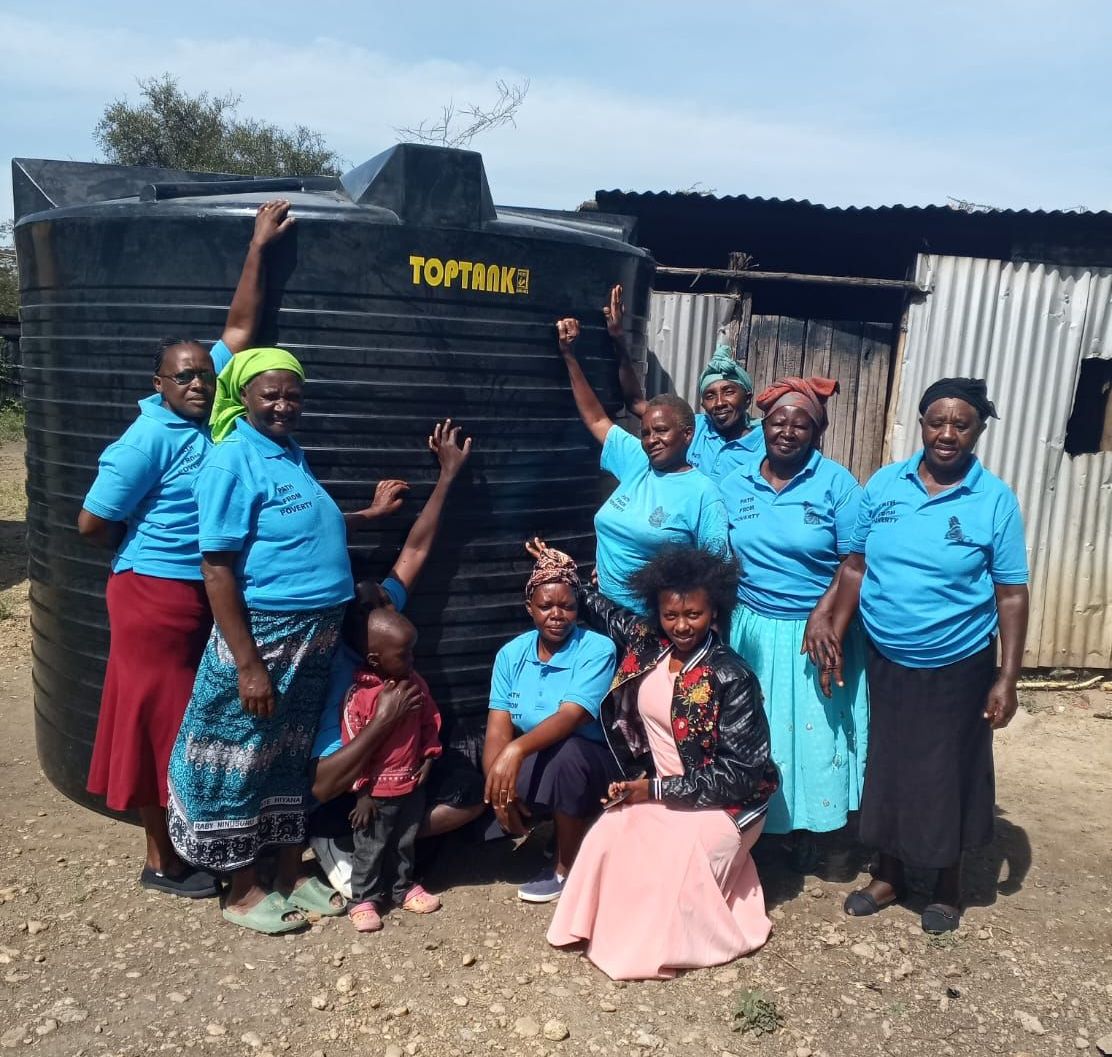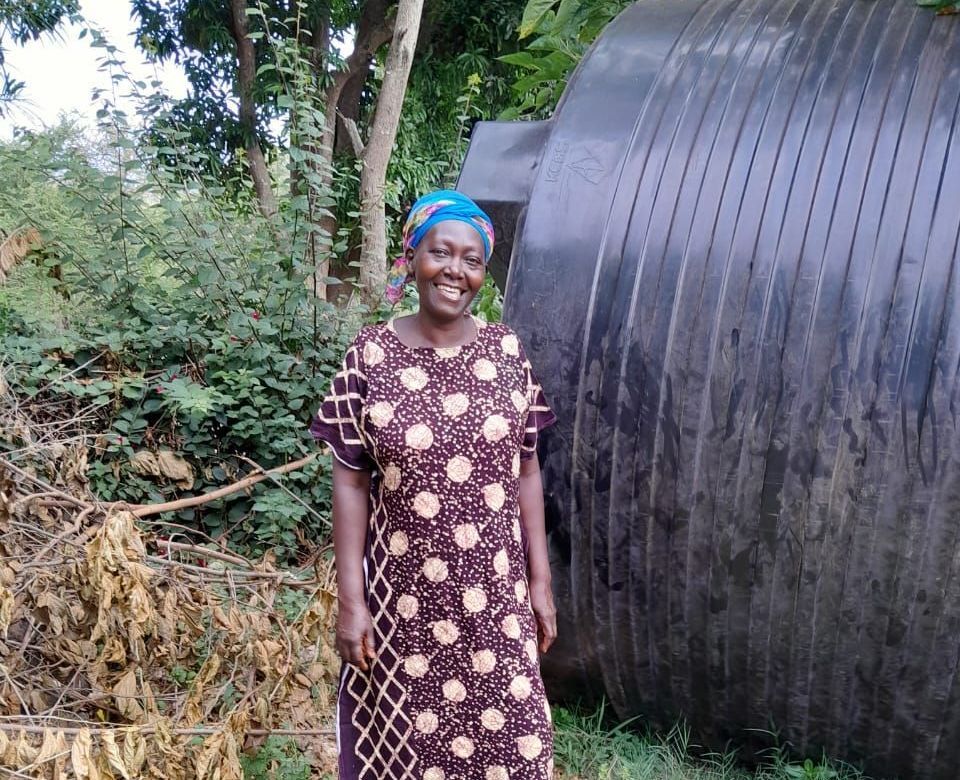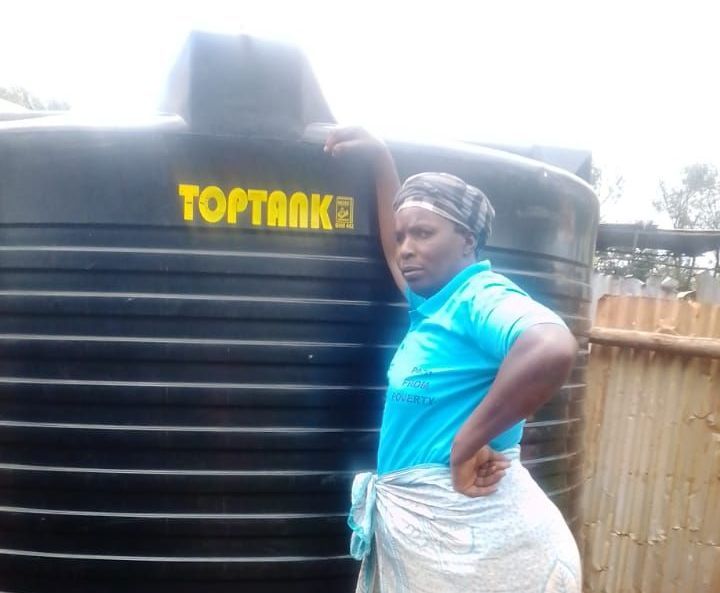Listening, Learning, and Empowering Women
I’ve given two sermons on behalf of PFP this last month, and I used Acts 9:36-42, the scripture about Tabitha, the woman Peter raised from the dead. Tabitha is a disciple and clearly, an important community leader. The Kenyan women read this story from Acts with great attention – Tabitha is a woman who cares for those in need, and she is a seamstress of notable talent – they hold her up as a role model that is tangible to them.
Tabitha purposefully sought out the poor and widows (the powerless) and actively looked to see how she could help meet their needs. In the first century, when women’s activities generally centered on daily survival for themselves and their families, Tabitha engaged the needs of her community. Her lifestyle showed that love is an active verb intent on doing good for others. She is introduced to us in the text with both her Aramaic and Greek names, perhaps to show that she was following the call of Jesus and ministering to both Jewish and Hellenistic communities.
I come back from every place we have lived in Africa and tell American Christians about the strong faith I have witnessed there, the deep sense of community and care I have been blessed with, and the profound generosity and hospitality I have experienced. North Americans have a lot we can learn from Africans. We are broken in ways we can barely see. My two children are both part of the LGBTQ community, and I had to attend a workshop last week on how to advocate for their rights so that I can do what every mother does – try to protect her children. We think we are wealthy, which we are in water, and things, but we are poor in community and even faith. This is manifest in the high levels of anxiety we experience, from our “first world problems” to the on-going racism and violence around us, such as yesterday’s school shooting.
Honestly, I struggled to write sermons about women’s empowerment. Last weekend, a white supremacist live streamed himself going into a black supermarket and killing 10 people in cold blood. Why? I learned about this thing called “replacement theory”, and an expert on NPR reported that while many people share this fear, only a few will take action, and it is because he felt called to do it to save others, a savior-complex.
And this took me to the book we are reading in preparation for our upcoming Work Team trip to Kenya, which I believe you have all read, “When Helping Hurts: How to alleviate poverty without hurting the poor..and yourself.” It is certainly possible to help in a way that hurts, and the biggest way is to come in with our big white “God-complex,” throw money around and think we need to save people, instead of listening, empowering, sharing privilege, and addressing brokenness in both systems and individuals. I’m glad that Path From Poverty is one of those organizations that try to do development differently, but we need to realize we have not “arrived.” That we still need to be honest about racism and inequities here at home, that microaggressions happen, and we must be willing to hear from people of color how we are hurting them, and provide them space to be honest.
It's also an on-going process to be humble; and every Work Team, actually, every email, we remind ourselves that we are servants to our women leaders. That they are in this mess partly because white colonialism messed up their land and their systems, and now their climate. That our reading of the Bible on what we should do was wrong, and then was wrong again, and that really, this goes back to the very beginning. Back to the garden of Eden and eating an apple that the serpent told us will make us be like God.
This is our fall. It’s not a long-ago origin myth; it’s our sin that needs repeated repentance. The desire to be like God is a current temptation that leads to death, even today.
So we have responsibility for water equity on the other side of the world. Our Christian sisters call out to us for help, and we act. We have to keep our god-complexes and paternalism in check, make sure we are listening and learning, empowering and not patching. Path From Poverty’s mission is to transform lives by partnering with women’s groups, empowering them to break the cycle of poverty and live into their God-given potential. The book on When Helping Hurts, defines poverty as the “absence of Shalom in all its meanings,” and poverty alleviation is about reconciling people’s relationships, with God, self, each other, and the land.
Twenty years ago, we were in Kenya doing lots of things – building a school, matching livestock. Then the women there said that if they simply had access to clean, safe water, they could take care of the rest of what their communities needed, on their own terms, and wouldn’t need our big interventions. Getting water is exhausting and depressing – can you imagine spending 5-7 hours a day collecting water? We didn’t have reliable water during our three years in Chad – it is time consuming and stressful to buy water, collect it in the bathtub, boil it, deal with diarrhea – and that’s having the resources to buy it! So that’s why we call this a mission in water equity – helping these women access water is simply leveling that illusive ‘playing field’ so that they can do what we all want to do – take care of our families and communities.
Our Kenyan leaders in PFP would now keep going without us in the US, if we disappeared tomorrow, and in fact, they raise money for more tanks than we can match. They are being Tabitha, and I do believe their communities would insist to the male disciples that they absolutely must be brought back to life, for the good of so many. May we be so inspired.
